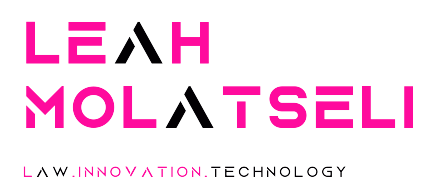In an era dominated by digital transformation, the legal industry is experiencing a revolution powered by data and innovation. This article explores the integral role of data in driving legal innovation, with a particular emphasis on the specific roles involved and the five types of data analysis that interface seamlessly with the legal domain.
The Role of Data in Legal Innovation:
Data has become the lifeblood of legal innovation, propelling the industry into a new frontier of efficiency, insight, and strategic decision-making. The integration of technology and data analytics has redefined how legal professionals approach their work, making processes more streamlined, informed, and ultimately, more effective.
The Legal Data Analyst:
At the forefront of this data-driven transformation is the legal data analyst. This role involves not only a deep understanding of legal processes but also proficiency in leveraging data analysis tools to extract meaningful insights. Legal data analysts play a crucial role in unraveling complex legal datasets, uncovering patterns, and providing strategic recommendations to legal teams.
The Five Types of Data Analysis in the Legal Industry:
1. Descriptive Analytics:
The purpose of descriptive analytics is understanding, what is happening, a snapshot of a particular issue within a set timeframe. In the legal industry more specifically we focus on legal data analysts utilizing descriptive analytics to summarize historical legal data. This includes generating reports on the total number of cases, common legal issues, and trends over time. Descriptive analytics lays the foundation for understanding the past and present state of legal affairs.
2.Diagnostic Analytics:
Generally speaking once you have established what is happening, your next step is determining why something is happening. So when legal issues arise, diagnostic analytics comes into play. Legal data analysts use this technique to investigate the root causes of problems or disputes. By analyzing historical data, they can pinpoint contributing factors and guide legal teams in resolving issues effectively.
3. Predictive Analytics:
The next step really has to do with being able to forecast a particular outcome. Predictive analytics allows legal professionals to forecast future legal outcomes based on historical data patterns. Legal data analysts build models to predict the likelihood of success in a case or identify potential risks in contracts, helping legal teams make informed decisions.
4. Prescriptive Analytics:
And lastly, prescriptive analytics focuses on what should be happening. For legal data analysts, prescriptive analytics involves providing actionable recommendations based on data insights. This might include suggesting optimal legal strategies, proposing modifications to contract terms, or advising on potential risks.
5. Text Analytics:
In a heavy text driven environment such as the legal industry, it follows that one needs have a set focus on text analytics. Now with the increasing volume of legal documents, text analytics has become invaluable. Legal data analysts employ natural language processing (NLP) techniques to extract insights from legal texts, aiding in document review, due diligence, and contract analysis.
As the legal industry embraces the power of data, the role of the legal data analyst becomes increasingly pivotal. By utilizing descriptive, diagnostic, predictive, prescriptive analytics, and text analytics, these professionals provide essential support in navigating the complexities of legal processes. This synergy of data and legal expertise not only enhances efficiency but also enables legal professionals to make more informed, strategic decisions.
In conclusion, the era of data-driven legal innovation is unfolding, and legal data analysts are the architects of this transformation. Their role is not merely about crunching numbers; it’s about deciphering the language of law through a data-centric lens, empowering legal teams to navigate complexities with precision and foresight. However in the real world and given roles and budgetary considerations, you might just find this being handled by IT or someone in Legal Ops or legal data especially with advanced Contract Lifecycle Management solutions which dont necessarily need that type of specialist knowledge or work beyond understanding the data provided by the CLM and how to present them to business.

